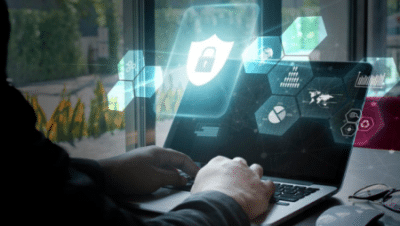Artificial intelligence tools may be able to crack your passwords
Artificial intelligence and GPT-based tools are already in use in many different
areas, far beyond the basic chatbot functionality they provide. And, as always,
cybercriminals are looking for ways to exploit these new opportunities. For example,
they have demonstrated the ability to create phishing emails that can deceive users
to a certain and affordable degree, thus industrializing the generation of
cybercrime.
But for the average user and those seeking access to their
accounts, one question stands out. Can GPT tools be used to crack passwords? For
ChatGPT, the answer is probably no. But you can still get some hints with it.
First, ChatGPT will provide you with the standard answer: it is unethical to
provide a list of commonly used passwords "because it could be used for malicious
purposes, such as hacking or identity theft." But once you ask it to play the role
of a cybersecurity researcher, warning users against common, insecure passwords, it
will list a list of common terms.
That said, the world of artificial
intelligence isn't limited to ChatGPT. there are a range of tools that use AI to
effortlessly crack your passwords.

Enter PassGAN
That's the warning from cybersecurity research
firm Home Security Heroes, which ran a list of 15.7 million passwords through a tool
called PassGAN.
Home Security Heroes found that PassGAN can instantly guess
any four- or five-character password, while any six-character password can be
deciphered by AI in less than four seconds.
According to the company, more
than half of the world's most commonly used passwords can be cracked in less than a
minute, while two-thirds of the most commonly used passwords can be discovered by
PassGAN in less than an hour. It takes less than six minutes to decipher any type of
seven-character password using the tool.
Home Security Heroes says passwords
longer than 18 characters are "generally safe for AI password crackers" because it
can take AI tools up to 10 months to understand what the password is. The company
developed PassGAN to try to understand what bad actors would do to find out a user's
password.
How PassGAN works
PassGAN uses a
technique called generative adversarial networks (GAN) to autonomously learn the
distribution of real passwords from actual password leaks, without the need for
manual password analysis.
GAN is commonly used in AI in a variety of ways,
and it allows better guessing of the types of features common to many passwords.
And this is just the first iteration of the technique. As AI evolves, it
becomes smarter, learning from past mistakes and fine-tuning its model to ensure it
produces better, more logical guesses. That means the surprisingly fast results
PassGAN gets at deciphering your passwords - without asking any questions - could
get even better over time.
Artificial intelligence has proven to be a boon
for many people, greatly improving efficiency in many areas of work. But for some,
hacking is also a job. So, sadly, we can expect to see AI used for nefarious
purposes just as much as it is used for good ones.
For now, you should
always follow best password practices to ensure that your passwords are not
compromised by humans or artificial intelligence.